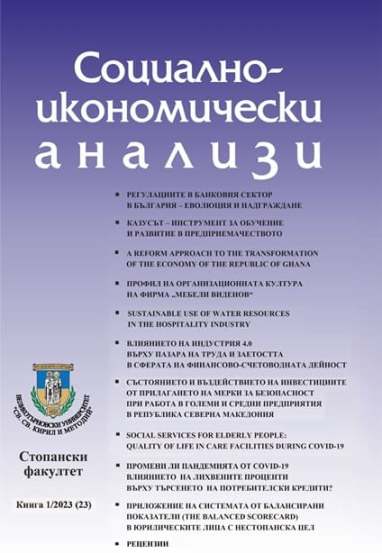A Reform Approach to the Transformation of the Economy of the Republic of Ghana
A Reform Approach to the Transformation of the Economy of the Republic of Ghana
Author(s): Karim NaamaSubject(s): Politics / Political Sciences, Politics, History, Economy, National Economy, Economic history, International relations/trade, Public Finances
Published by: Великотърновски университет „Св. св. Кирил и Методий”
Keywords: Ghana; reforms; GDP; IMF
Summary/Abstract: For most of the 1970s and early 1980s, Ghana experienced economic instability characterized by declining yields, rapidly rising inflation, and increasing trade imbalances. Production declined due to migration of skilled labour, collapse of capital structures, and destruction of the entire infrastructure. These factors reflected a set of external factors and inappropriate internal policy indicators. Despite the policy of protectionism, most of the large state-owned enterprises caused huge losses to the government, and financing with bank loans became necessary. By 1983, the year in which the economic reform programme began, Ghana’s economy was wrecked and destroyed. Signs of total collapse were everywhere. Wages were 13% below the 1975 real levels, and overall investment was less than 4% of its gross domesic product (GDP). The state of the economy improved in late 1984 as a result of government efforts to build and rehabilitate airports.
Journal: Социално-икономически анализи
- Issue Year: 2023
- Issue No: 1
- Page Range: 32-37
- Page Count: 6
- Language: English

